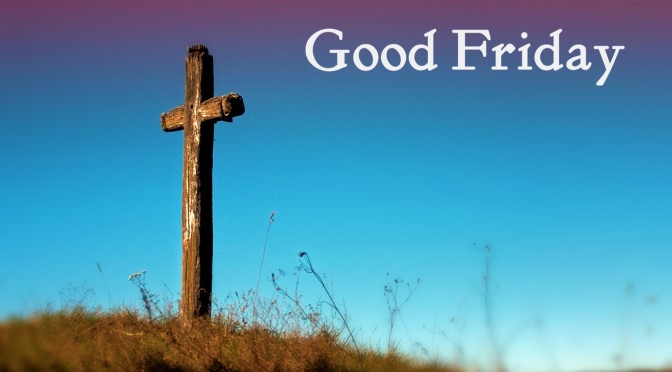a Sermon for Good Friday C
Text: John 18:1-19:42
The Cross
Jesus was forced to carry it. He died on it. What more do we know about it?
Jesus was being led to the outskirts of the city, right outside the front gate. This is where traitors were hanged and let to rot in the sun. Visitors would know what Rome does to those who undermine Rome’s authority. They couldn’t miss it.
Rome crucified traitors, not petty criminals. It is not a universal punishment, but a specific one. It is reserved for those who defy Rome: revolutionaries, rebels. Not so much thieves, beggars, or even murderers.
The cross was tall, but not like in the movies. Just tall enough to get your feet off the ground by a couple of feet. Low enough that stray dogs would tear the flesh off the bodies of the crucified.
The cross is a torture device, causing extreme pain. It would normally take days to die, but death was certain. This is the shock of Jesus’s relatively quick death on the cross.
Like the lynching tree, the cross is an act of terrorism. It’s intention is to humiliate and frighten the locals, demonstrating what happens to those who rock the boat.
The cross is the work of Rome, not “The Jews”. The gospels portray Pilate as an unwilling judge, but the cross is a Roman weapon, not a Jewish one. Regardless of the church’s anti-Semitic past, it is undoubtedly Rome that kills Jesus.
The changing nature
 The proto- and early Christians used a sign to identify themselves to one another: the ichthys, or Jesus fish. This symbol matched their understanding of themselves as fishers of people. In spite of this, the cross became the symbol for Christ and Christianity. There’s only one explanation: it is a rejection of Rome. It is common in oppressed communities to adopt the symbol used to humiliate them.
The proto- and early Christians used a sign to identify themselves to one another: the ichthys, or Jesus fish. This symbol matched their understanding of themselves as fishers of people. In spite of this, the cross became the symbol for Christ and Christianity. There’s only one explanation: it is a rejection of Rome. It is common in oppressed communities to adopt the symbol used to humiliate them.
So the cross you wear is supposed to be the cross you bear.
It is not your jersey, your advertizement, your billboard, your evangelism tool. It is a declaration that you reject Rome and its cult of subordination and violence and a sign of your allegiance to GOD’s kingdom.
And yet, when Constantine absorbed the early church into Rome, the cross, the symbol of Roman oppression was redefined a third time. It was wrestled back by its first users and stripped of its revolutionary power. Once again, Rome the mighty, enemy of the Kingdom of GOD, was using the cross as a symbol of its power, its domination, its adoration of violence and control.
In the nearly 17 centuries after Constantine’s death, the cross has more often been used as a sign of state power and oppression and hatred than the peace and love those first followers. Those people that adopted the cross as an orphan, saying This is your new family. We treat each other differently in this house.
Wearing the cross
When I wear my cross, I do so to reject Rome, to show my allegiance goes to no country but to one kingdom.
Most of the time, I don’t wear a cross. I have a few reasons. Take with you this one: for many, the cross is always a sign of oppression and cannot be redeemed. It is a sign of human greed and violence and arrogance. It reminds them of how full of sin the church continues to be. And it terrifies them that we are powerful and irrational. A terrible combination. Many cannot see Christ in the cross.
In spite of all that the cross has become and what it has yet to become, it is deeply symbolic of our struggles and of our ongoing learning. It is what we bear with Jesus today. Just as many of His first followers met that same fate, executed by Rome.
But we do so with a certain knowledge that Jesus came to us at a specific moment in our history and yet is always here; always with us. That the Christ, the Word, is here: in flesh and wine and water and wood. That Jesus died, yet never leaves us.
May we, Christ’s humble servants reject the cross of power and authority and certainty and murder and fear and greed and hate and sin and all things we know deep in our hearts to be wrong. May we instead take up that other cross of humility and sacrifice and faith and generosity and goodness and love. And may we know that in everything Jesus loves us and dreams for us and pushes us to make this place more fully GOD’s Kingdom.



Leave a Reply